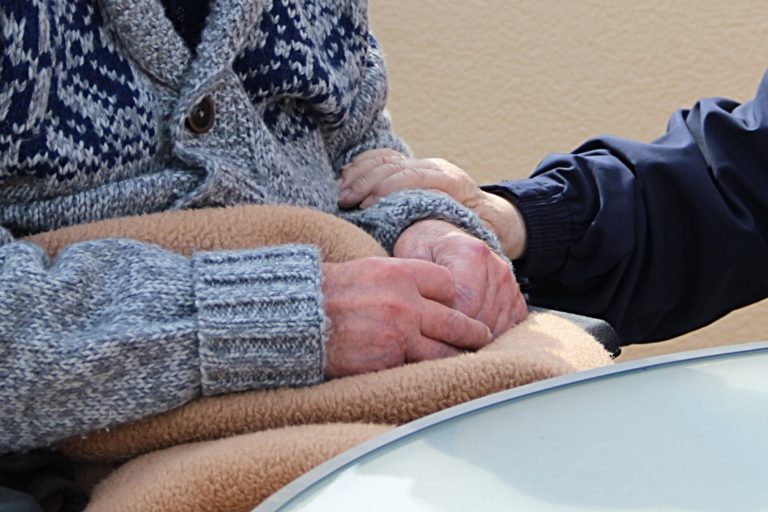Abuse of the elderly affects 1 in 6 adults, which makes up about 141 million people suffering from neglect or mistreatment. And nursing home abuse makes up a large portion of these abusive situations.
If you suspect that your family member is the victim of abuse while in the care of a nursing facility, it’s crucial that you report it right away.
Wondering how to report nursing home abuse? Read on to find out more:
First, Recognize the Signs of Nursing Home Abuse
Recognizing the signs of potential nursing home abuse will help you determine if something needs to be reported. Some of the physical and emotional signs to look for include:
- The presence of bedsores
- A lack of interest in social activities that they used to love
- Dramatic changes in behavior
- Sudden changes to your loved one’s Power of Attorney or Will
- Financial problems or bills going unpaid
- Bleeding wounds
- Bruises
- Lack of hygiene
- Development of unexplained infections
- Unexplainable weight loss
If you notice any of these signs of abuse, you need to report them right away.
The Elderly Are the Least Likely to Report Their Abuse
Though there are statistics on the frequency of nursing home abuse, it’s hard to determine how common the problem remains. The is due to the inability that many elderly people face to communicate effectively due to mental or physical ailments.
Other elderly patients are fearful that speaking out about their abuse will result in retaliation from nursing home staff. Many elderly nursing home patients simply feel helpless in general which can lead to them try to rationalize their situation.
This is why it’s so important for family members and friends of those in nursing homes to look out for signs of nursing home abuse and neglect. And though bruises, broken bones, bedsores, or cuts are obvious signs, there are also more subtle clues. These include signs of dehydration or weight loss. Many people confuse these signs with typical signs of the aging process.
Sometimes the signs of neglect are simple like dirty clothing or bedding. Your loved one should be well cared for and kept in a safe, clean environment.
So where do you report suspected abuse, and to whom?
How to Report Nursing Home Abuse
If you work as a nurse, doctor, social worker, or other health care provider, you are required by law to report any suspected abuse. In many states, anyone, regardless of their profession, is required by law to report abuse if they have good reason to suspect it.
So whether you’re a health care provider, a relative, a close friend, or someone who volunteers at a nursing home, and you think that something is amiss, you shouldn’t hesitate to make a report. Here’s who to contact:
- If the abuse is life-threatening, don’t wait, call 911 right away.
- In situations that aren’t as urgent, the “Eldercare Locator” can fill you in on the laws and regulations the govern your state as it relates to nursing home abuse. Open on weekdays, they can be called at 1 (800) 677-1116.
- The next step is to visit the National Eldercare Abuse website to look for a list of authorities that govern your area. You should be able to find names of authorities, their phone numbers, and their email addresses. Don’t hesitate to contact more than one authority and follow up if needed.
- You should also contact the primary care physician of the patient experiencing the abuse. Give them details about the physical and emotional symptoms and any information about the nursing home that they ask for.
Consider Getting a Lawyer Involved
In addition to reporting nursing home abuse to authorities, social workers, and doctors, you might want to consider hiring an attorney to help as well. An attorney can guide you through the whole process of reporting the abuse and gathering necessary evidence.
There are many attorneys whose whole practice is centered around providing legal assistance to victims of nursing home abuse and they can advise you. A good attorney can help you file a lawsuit against the facility and the caregivers for negligence.
Look for an experienced attorney who has handled many cases similar to your own and comes recommended and trusted by others.
Avoid a Repeat Case of Abuse
Knowing how to report nursing home abuse is the first step. Once you’ve reported the abuse, the next step is to remove your loved one from their current nursing home to a new facility. This can be a stressful transition for your family member, but it’s important in reducing the risk that they are mistreated again.
While looking for a new facility, you want to take your time and research other options carefully. Seek out reviews from others, check out the facility in person, meet staff members, ask lots of questions, and don’t forget to check-in often.
Continue to keep an eye out for the signs of abuse at the new nursing home as well. Abuse can happen at any facility, even those with high reviews.
Discover Other Helpful Health Information
Now that you know how to report nursing home abuse and the signs you should keep an eye out for, learn more about how to take care of the health of those you love by browsing our many other articles.
Whether you’re looking for advice on caring for an elderly loved one, or tips on boosting your own health and well-being, we have lots of great information.

